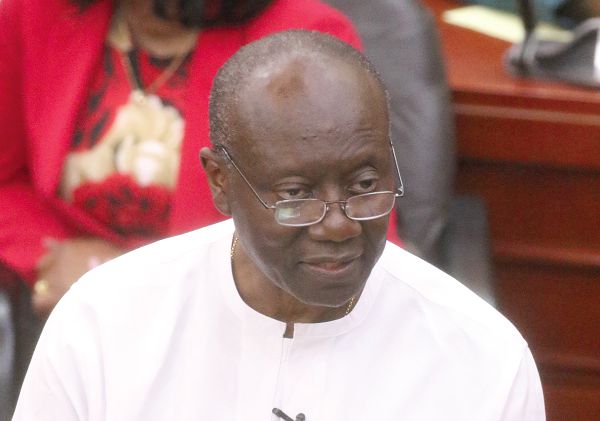The International Monetary Fund (IMF) has boosted Ghana’s fight against the novel Coronavirus (Covid-19) pandemic after approving the government’s request for financial support to curb the viral spread and mitigate its impact on lives and the economy.
The fund on April 13 approved a $1 billion credit facility that it said would help “address the country’s urgent financing needs, improve confidence, and catalyse support from other international partners.”
The loan is to be drawn from the IMF’s Rapid Credit Facility (RCF), a product of the Bretton Woods institution that provides concessionary financial assistance with with limited conditionalities to low-income countries (LICs).
A statement issued on April 13 said although the government was proactive in addressing the issue, “additional support from other development partners will be required and critical to close the remaining external financing gap and ease budget constraints.”
It said the pandemic had already led to a slowdown in growth, tighter financial conditions and increased pressure on the exchange rate.
It added that the IMF would continue to monitor Ghana’s situation closely and was also ready to provide policy advice and further support as needed.
This is the second time in five years that the country has sought financial assistance from the IMF to help smoothen out fiscal roughages and bolster growth in the economy.
In 2015, the country entered into a $918 million Extended Credit Facility (ECF) programme with the IMF to help correct the fiscal slippages at the time that were resulting mainly from a deterioration in the external sector.
The three-year programme was later extended by a year and ended in April last year.
Below is the full statement
IMF Executive Board approves a US$1 billion disbursement to Ghana to address the COVID-19 Pandemic
FOR IMMEDIATE RELEASE
The Executive Board of the International Monetary Fund (IMF) today approved the disbursement of SDR 738 million (about US$1 billion) to be drawn under the Rapid Credit Facility (RCF). The disbursement will help address the urgent fiscal and balance of payments needs that Ghana is facing, improve confidence, and catalyze support from other development partners.
The COVID-19 pandemic is already impacting Ghana severely. Growth is slowing down, financial conditions have tightened, and the exchange rate is under pressure. This has resulted in large government and external financing needs. The authorities have timely and proactively responded to contain the spread of the COVID-19 pandemic in Ghana and support affected households and firms.
The IMF continues to monitor Ghana’s situation closely and stands ready to provide policy advice and further support as needed.
Following the Executive Board’s discussion of Ghana, Mr. Zhang, Deputy Managing Director and Chair, issued the following statement:
“The COVID-19 pandemic is impacting Ghana severely. Growth is projected to slow down, financial conditions have tightened, and the exchange rate is under pressure. The budget deficit is projected to widen this year given expected lower government revenues and higher spending needs related to the pandemic. The Fund’s emergency financial assistance under the Rapid Credit Facility will help address the country’s urgent financing needs, improve confidence, and catalyze support from other international partners. “The authorities’ response has been timely, targeted, and proactive, focused on increasing health and social spending to support affected households and firms. The Central Bank has recently taken steps to ensure adequate liquidity, preserve financial stability, and mitigate the economic impact of the pandemic, while allowing for exchange rate flexibility to preserve external buffers.
“The uncertain dynamics of the pandemic creates significant risks to the macroeconomic outlook. Ghana continues to be classified at high risk of debt distress. he authorities remain committed to policies consistent with strong growth, rapid poverty reduction, and macroeconomic stability over the medium-term.
“Additional support from other development partners will be required and critical to close the remaining external financing gap and ease budget constraints.”
Source: Graphic Online





